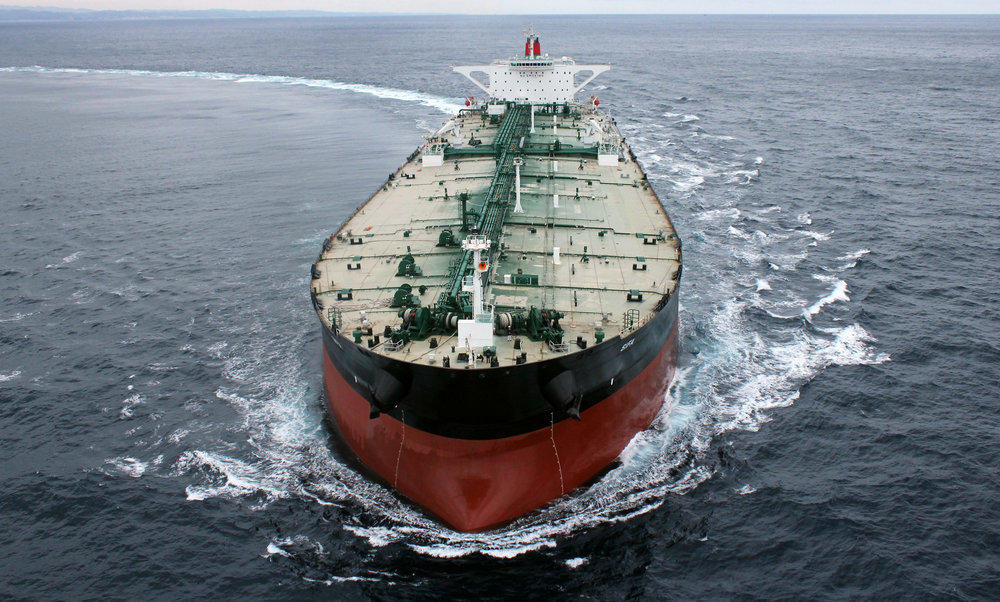Europe chomps most Iran oil in years with supertankers due in days

Europe is poised to receive the most Iranian crude in about five years this month in a sign that the Persian Gulf nation may be regaining its share of a market it had lost to sanctions.
Arrivals on supertankers will reach 622,581 barrels a day in January, the biggest flows for a single month since at least November 2011, according to ship-tracking and European Union data compiled by Bloomberg. Two Iranian supertankers -- Huge and Snow -- are en route, bringing about four million barrels between them. Sanctions halted all deliveries back in 2012 and they only restarted early last year as the measures were eased.
“Iran’s been trying to regain their traditional clients -- in countries like Greece and Italy -- as a priority,” said Robin Mills, chief executive officer of Dubai-based consultant Qamar Energy, who tracks the nation’s oil trade. “Beyond that, it’s an opportunistic push to win additional customers.”
Market share
Until the Organization of Petroleum Exporting Countries agreed to restrict output on Nov. 30, producers had been competing for market share globally by pumping as much as they could, driving down prices as inventories swelled. It’s too soon to say whether the flows from Iran mark a permanent push to regain European market share because most of the ships arriving this month left the country’s ports before Jan. 1, when OPEC’s restrictions took effect.
Iran’s sales to Mediterranean countries such as Italy, Spain and Greece are dominated by shipments of heavy grades, according to an official at the National Iranian Oil Co., who asked not to be identified in line with his employer’s policy. It’s also selling more of its Iranian Light crude -- useful in making fuels like gasoline -- on an opportunistic basis to buyers in North West Europe, including via one time spot-cargo sales, the person said.
Ship-tracking data show France to have been the biggest European buyer since sanctions were lifted, accounting for a third of all deliveries.
Iran’s share oil production within OPEC is now getting close to where it was before the sanctions targeting its nuclear program were imposed, according to Mills. The measures made it hard for shipping companies to move Iranian barrels and would have punished buyer nations if they increased purchases.
Others cutting
Now other producers both inside and outside OPEC are cutting supplies, including to European buyers. Saudi Arabia is pumping below 10 million barrels a day, Energy Minister Khalid al-Falih said Jan. 12, a larger reduction than it pledged. One big European oil refiner is getting about 20 percent less Saudi Arabian crude in January and February than it would have before OPEC’s curbs took hold, a person with knowledge of the matter said Jan. 12. Volumes from Iraq also shrank, according to the person.
For its part, Iran didn’t have to cut output in the same way as other OPEC nations, who had to cut from what they were pumping in October. The starting point for its restrictions allowed for the nation to increase pumping rates.
Huge and Snow, the two Iranian supertankers, will deliver their cargoes early next month to the Rotterdam oil-trading hub, the vessel data compiled by Bloomberg show. They are the first Iran-owned ships to arrive in Europe since sanctions were eased. Using Iranian ships affords Iran greater flexibility about cargo loading and delivery dates, the NIOC official said.
Preliminary signs from ship tracking are February deliveries will drop to about 393,000 barrels a day. Other vessels could yet depart for Europe.
“Iran’s going to be one of the only growing suppliers among OPEC,” Mills said. “If OPEC’s other members are cutting back, that should give Iran plenty of room to place more barrels.”
(Source: Bloomberg)
